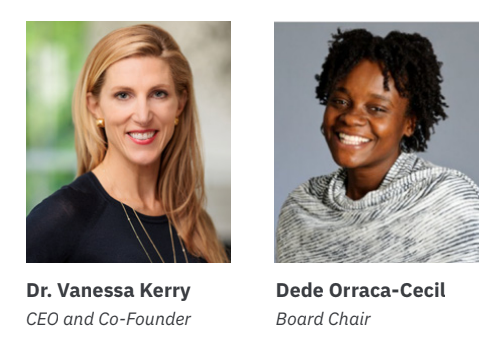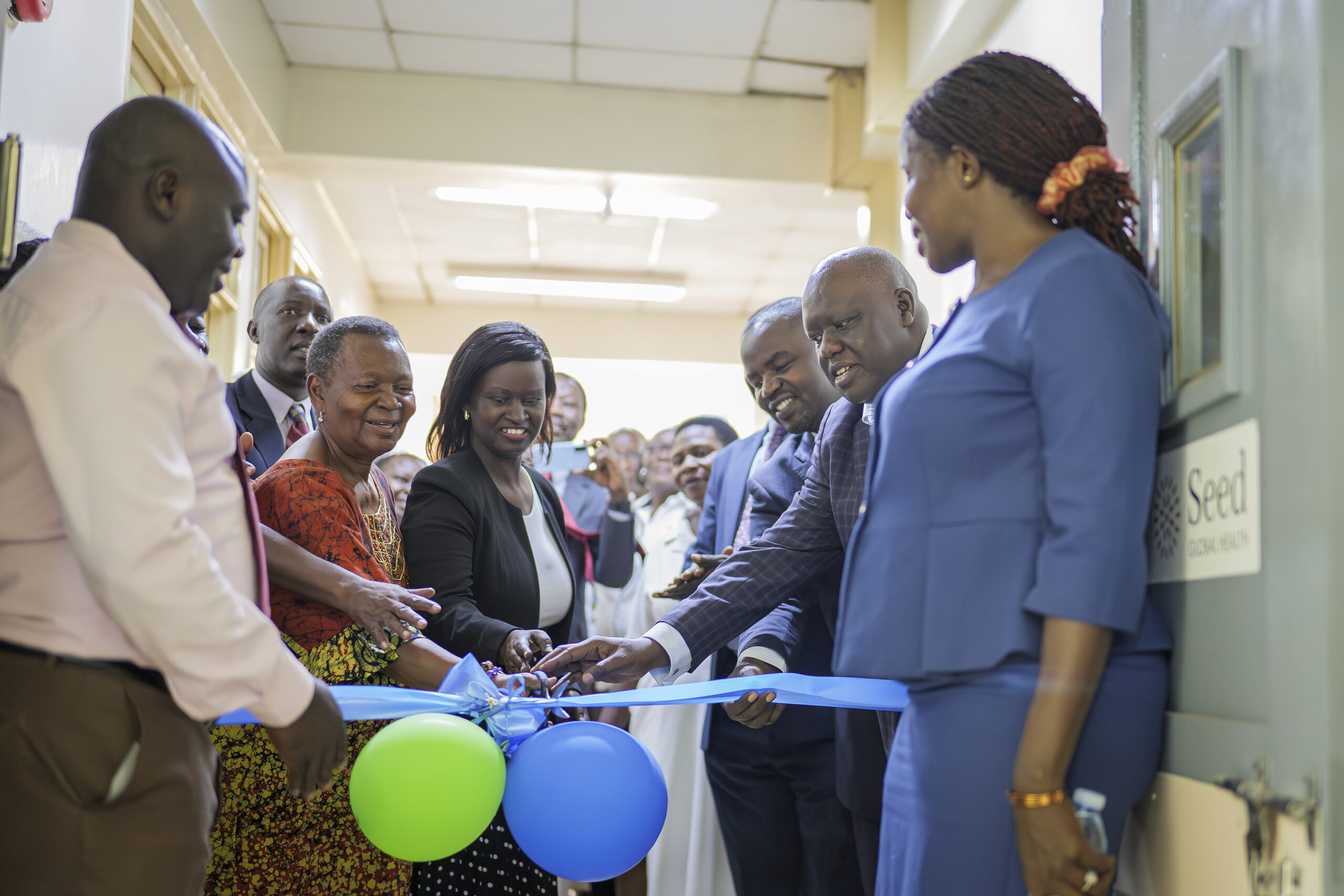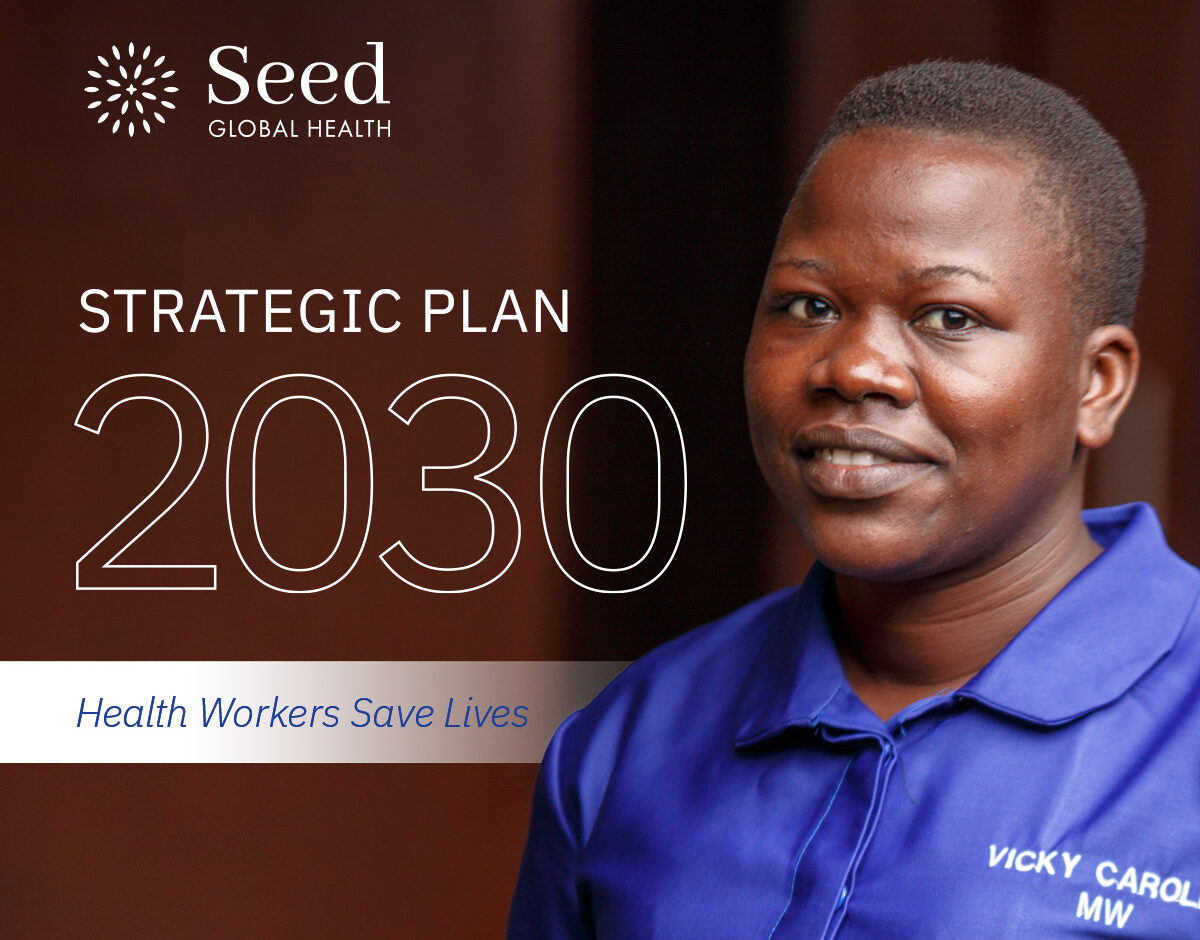
Announcing our 2030 Strategic Plan: Health Workers Save Lives
A special message from our Board Chair Dede Orraca-Cecil and CEO Vanessa Kerry
Download our 2030 Strategic Plan here.
Seed Global Health is founded on the belief that health workers are essential—they are the heart of our health systems. For more than ten years, we have worked with governments and partners in Africa to build strong health systems by educating health workers to provide high-quality care and save lives.
Today, the world needs health workers more than ever before.
Since our founding, we have trained more than 42,000 health workers who are in service to more than 76 million people.
Yet their work is getting harder.
Health workers are confronting rapidly rising rates of infectious and noncommunicable diseases, pandemics, and climate-driven emergencies. Higher levels of malaria mean that where there used to be two patients per bed during the high season, there are now six to eight. And the number of children dying from malaria is at risk of rising again at a time when that number should be dropping. Extreme heat is making pregnancy more dangerous, increasing rates of pre-term birth and stillbirths. The examples are endless.
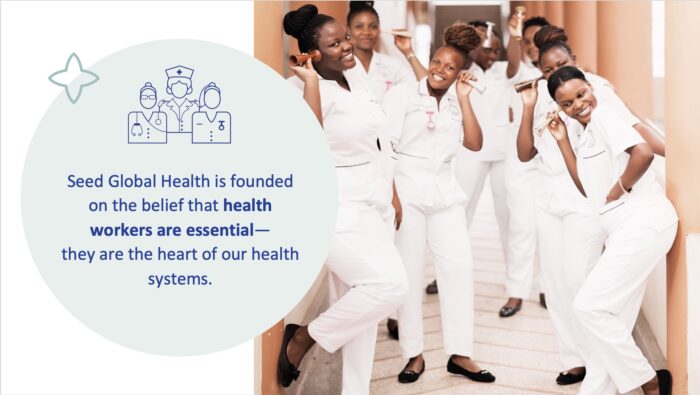
As we started to witness these challenges at Seed, it became clear that climate change is the greatest threat to human health and to our human survival. We must understand that the climate crisis is, fundamentally, a health crisis. And we must start measuring our progress against this crisis not just in terms of degrees Celsius averted, but in lives saved. Our 2030 strategic plan is our continued commitment to tackle the challenges we are facing in the world.
At Seed, the solution is simple.
We believe that health workers are our first and most important investment to meet these challenges. Health workers are our roadmap for strengthening health systems, building our responsiveness and resilience, and ensuring better health for all.
Our 2030 strategic plan has two overarching goals:
1) Build the health workforce of the future
2) Advance the health workforce as a global priority
Health workers are resilient, adaptive, and have their fingers on the pulses of their communities. They are on the frontlines of surveillance and response when a disease outbreak occurs. They tell us when there is no blood in the blood bank or when there’s a stockout of essential medicines. They can care for family and address the myriad health needs of a community. They tell us what is the most important investment in their health centers. And when that issue is addressed, they tell us the next most important investment for saving lives in their communities.
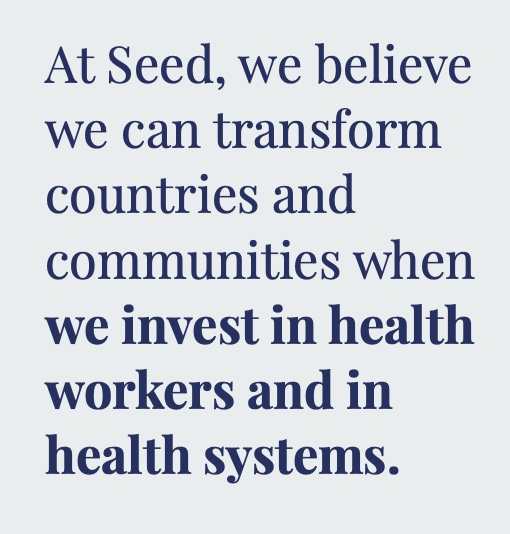
Investing in health workers saves money and creates jobs. And since 70% of health workforce jobs are occupied by women, this approach also promotes gender equity. At Seed, we believe we can transform countries and communities when we invest in health workers and in health systems. Since our founding in 2012, Seed has had the great privilege of working with outstanding partners to educate and train the next generation of doctors, nurses, and midwives. We are humbled that they have invited us to work with them to strengthen health education curricula and the quality of care in their countries and institutions. They inspire and motivate us every day.
Over the next six years, we look forward to deepening our commitment and service to them. Our strategic plan is mapped to 2030 in support of our partners’ priorities to contribute to achieving universal health coverage and the Sustainable Development Goals. At Seed, our priorities are guided by our partners’ priorities—that’s part of what makes us different.
We invite you to join us on the path to 2030 as we build the health workforce of the future to save lives—and our planet.
With gratitude,
Vanessa & Dede
